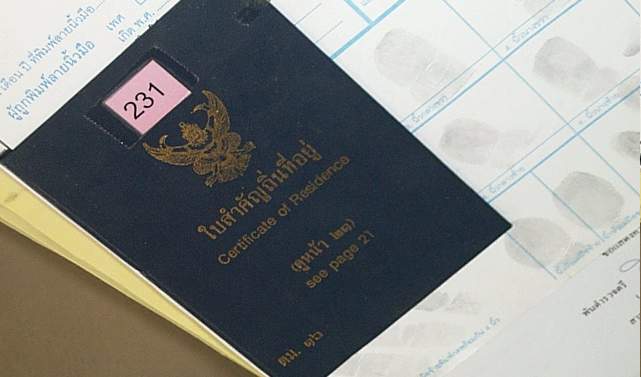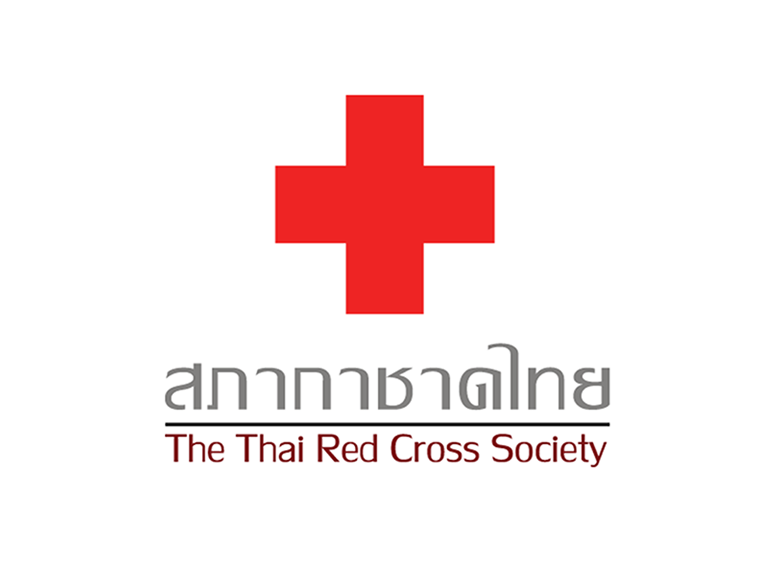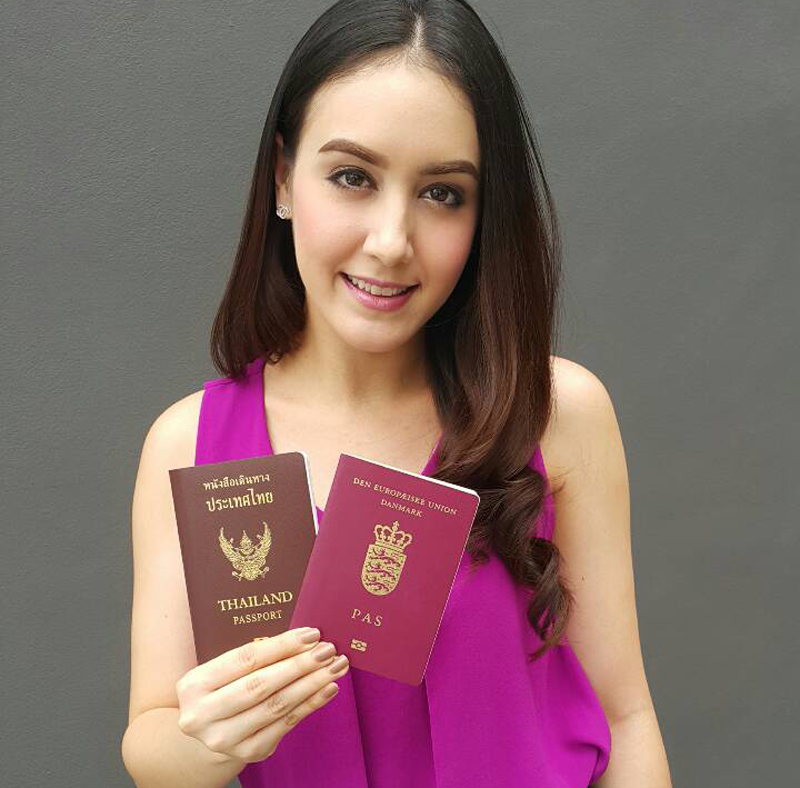It is estimated there are nearly 3 million people of Thai ancestry living outside of Thailand. This includes both Thai passport holders but also people with Thai ancestry but holding another passport.
For these latter group of people, there is a little-known visa class which allows people with Thai heritage to effectively spend an unlimited time in Thailand – all with extraordinarily little effort. So, if you have some Thai background, please read on.
Visas vs extensions of stay
Lets get the technical speak out of the way first. Officially, once you land in Thailand, the word ‘visa’ isn’t applicable. A ‘visa’ is the sticker in the passport from a Thai embassy before you arrive. For Thailand, the longest visa’s normally allow you to stay for is 90 days after arrival. If you want to stay longer than the date stamped in your passport when you first arrive, you are going to need what in Thailand is known as an ‘extension of stay’ from a local immigration office.
You need to have a reason to be granted an extension of stay. Most extensions of stay are granted based on things like work, education, marriage, retirement or having a Thai citizen child. But all require a lot of proof and some come with hefty strings attached, like needing 800,000 baht (US$25,000) in the bank. Other long-term permissions to stay in Thailand, such as Thailand’s ‘Elite’ Visa start at 500,000 baht (US$15,000) for 5 years.
Extensions of stay – having a Thai parent
Amid all the potential reasons for extending your stay, exists a specific clause designed for people with Thai ancestry. Immigration Order No. 327/2557 allows for the following:
2.23 In the case of a person who used to have Thai nationality or whose parent is or was of Thai nationality visiting relatives or returning to his or her original homeland:
Unlike other ‘extensions of stay’ categories, the evidence needed here is very simple. The applicant:
1) Must have evidence that the applicant used to have Thai nationality or that his her parent is or was of Thai nationality.
In essence, providing evidence of your one of your parents Thai nationality will be enough to grant you a year’s extension of stay in Thailand.
How does this work?
Unlike other ‘extension of stay’ categories, there is no need to get any special visas before you enter Thailand. If you are from a country which is granted visa-free entry into Thailand (usually for 30 days) you can simply fly into Thailand and be stamped in, initially for 30 days.
Once in the country, you can head to the immigration department in your closest province and request an extension of stay.
- A completed TM.7 form (available here);
- Copy of the applicant’s passport; and
- Copy of documents showing that the one of the applicants parents either have, or, used to have Thai nationality.
For (3), this usually involves certified copies of the Thai parents ID. This could include their citizen identification card, their passports or Thai birth certificates. Also needed is your birth certificate showing your Thai parents name on it.
It is important that when showing evidence of Thai nationality, the spelling of all names should align, and if they don’t, then a certificate from a Thai embassy or consulate or evidence confirming that they are the same person should be provided. The regulations also say that declarations from Thai citizens are also acceptable.
The exact Thai immigration link is here at point 23 on the list (Thai only).
But…with a Thai ancestry, doesn’t that make me a Thai citizen?
Yes, it does. A child born to a parent with Thai nationality is automatically a Thai citizen by the Thai government regardless of the place of birth. There are also no generational limits on how far this right can be handed down. As such, you have the right to a Thai birth certificate, and passport, which is outlined in our article “Thai citizenship when born overseas”.
Usually, it is mostly the case that it is easy enough (and recommended) for those with Thai ancestry to go down this route and enter Thailand on a Thai passport if you intend to stay for an extended period of time. It is also recommended that you get your Thai house registration and Thai ID card issued on your first trip back. However, a person with a Thai parent who wishes to live in Thailand might not always be able to use that option – an issue we discuss in further detail below.
Pros and cons of this the ancestry clause
This type of extension of stay holds a few decent upsides, but also a couple of significant downsides. The main ‘upside’ is that people effectively have access to an unlimited stay in Thailand – subject to annual renewal with minimal requirements proving your parent is Thai. The main downsides come with the fact that on this visa, you are still considered a foreigner for immigration purposes.
As such you:
- Are subject to TM30 registration, 90-day reporting an having to extend the visa ever year;
- Have no automatic work rights in Thailand, and still require a work permit if you are going to work; and
- No rights to own land.

So who is this visa really going to benefit?
We can think of a few different types of situations where this visa is going to be useful. This includes:
- Those from countries where dual citizenship is prohibited;
- People who have been born to a parent from Thailand, but where that parent was forced to renounce Thai citizenship to take up a new citizenship (e.g. Austria, Singapore). As such, unless you were born before that parent renounced their citizenship, you don’t have access to Thai citizenship.
- Those looking to spend an extended period of time in Thailand in excess of the usual 60-day tourist visas;
- ‘Digital Nomads’ who aren’t working for a Thai employer but wish to base themselves in Thailand;
- Males under 30 born overseas to a Thai parent, not yet registered on a house registration in Thailand and who do not wish to expose themselves to military conscription by entering Thailand on a Thai passport; and
- People struggling to put together the paperwork to get a Thai passport or get their Thai ID card issued in a prompt and timely fashion from a district office.
So I’m a Thai citizen, but I’m not?
Yes – and no. As stated earlier, if you were born to a Thai parent you are automatically Thai according to the Nationality Act. So it is strange that this extension of stay exists in some ways.
But at the end of the day, until you have the paperwork in order, you can’t get a Thai passport. And while it is mostly straight forward to do so, there are some instances where it isn’t.
Based a variety of questions we’ve received on this website, the divorce or death of a Thai parent is a main why people aren’t immediately able to get a Thai passport. So, while alternatives such as DNA testing or going your parents home district to register yourself as a Thai citizen, these things take time, and this visa would also be useful to give you time to do these things.
As such, while coming to Thailand and entering as a Thai citizen is the simplest and optimal way for most, this visa is a good substitute for those with Thai ancestry who can’t.
On the Thai ancestry visa but have recently gotten a Thai ID card?
So many people use the ancestry visa as a ‘holding pattern visa’ while they wait in country to process their Thai ID card. While this is normally a straight-forward process, for some people it can take many months due to a lack of all the correct documentation by the applicant. However, once you gave your Thai ID card and a registered properly in the system, you are still technically in Thailand on your foreign passport. In this case, and this case only, it is fine for your ancestry visa to lapse. Recent changes in 2023 mean that if Thai dual citizens entered on a foreign passport they won’t get charged overstay when departing so long as they can show their Thai ID card to immigration on departure. We cover that in this article titled ‘Entering Thailand on a foreign passport‘.








So do I have to submit the application for this visa in Thailand? I’ve heard now that I have to do that at my local Thai embassy in my home country. I planned to go to Thailand one way and get registered there in the mean time. But usually when I apply for a visa, I have to show when my return flight is booked.
Thai citizenship
My mother is Thai and I was born in Udon Thani. All I have is a copy of my birth certificate and my US passport that states I was born here in Thailand. Is this enough to get my ancestry visa?
I do not know where my mother is and haven’t seen her in 45 years. Also my father recently died.
Hi there,
If you were born in Thailand, you’ll have a Thai birth certificate. What does that say on it with respect to your mothers name and nationality? Ideally if you had copies of her ID it would be useful, but given you were born in Thailand it is likely your Thai BC will state your mothers name and nationality (it Thai), so you might be in luck.
Nevertheless, why don’t you opt for re-establishing your Thai citizenship?
I want to get my citizenship back but I can’t find my mother and the district office in Udon Thani have no record of my mom and I. Yes I have a copy of my Thai birth certificate also.
So yours is actually not an uncommon situation that many Thais left in the 60s and 70s and needed to restablish their citizenship.
It may be that your Thai birth certificates and birth records haven’t been digitalised. That doesn’t mean they dont exist.
I know a couple of Thai people who moved away in the 70s who have essentially had the district office sort through the old paper archives to find their old documents, and once found, via cross referencing those archives with the returnees other documents their was enough confidence to re register that person on a tabieen Baan.
You might have to push for it, and in one case they liteerally paid an officer to do some overtime to physically dig through old files, but once found they were re-registered without issue.
The other option is if you have contact with other remaining relatives is to ask for a DNA test. I write about that here: https://www.thaicitizenship.com/thai-citizenship-using-dna-testing/
Yes my thai birth certificate states my mom is Thai. I was born in 1971 in Udon Thani. Left Thailand in 1976 and want to retire in Thailand.
Hi, my situation has a bit more to it but I was wondering if it is still worth a try. My grandmother was Thai, she has passed away since. This means my mother is Thai by birth but she has never had a Thai citizenship. I have blood relatives that are still living in Thailand. Do I have any eligibility for a Thai citizenship?
Thank you.
Hi there
Both your mum and you need to establish proof of blood relations to existing Thai citizen. This article include a list of possible and testable matches. Note, all of this has to be done in Thailand
https://www.thaicitizenship.com/thai-citizenship-using-dna-testing/
Get a dna test, the article said that works, my grandfather is Thai, on my mother’s side but he abandoned my grandmother after she and supposedly my aunt were born. We don’t know my grandfather’s name and my family migrated to america after the war. So we have no idea what happened to him. My only choice is to do a dna test.
Hi there
I’m sorry to hear this. To be honest you’ll need to track down one of his living relatives in Thailand who have current Thai ID who can establish their relationship to your mother and then to you. That the only route I can think of if you can’t find your grandfather.
Hi, my grandfather is a Thai but died in the Philippines. Can I still get an ancestry visa? I have lots of relatives here in Thailand.
Hi there – so you’ll need some definitive evidence of your parent who holds Thai citizenship to be eligible for that visa. Depending on what Thai documentation your grandfather left behind, his child (your parent) needs to first apply for a Thai birth certificate themselves.